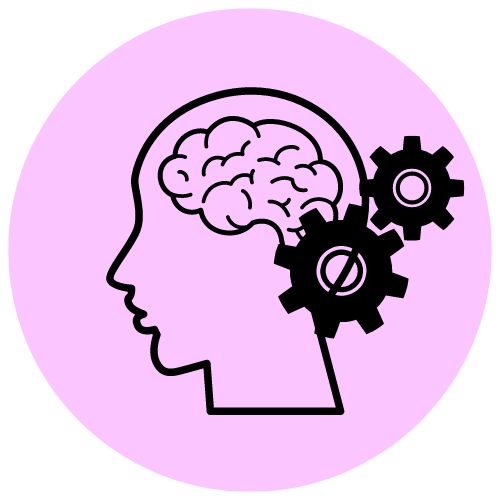Alcohol Addiction Treatment
Alcoholism, popularly referred to as Alcohol addiction or abuse, is typically a medical condition caused due to excessive consumption of alcohol with an inability to control chronic drinking. Alcohol abuse can range from mild to moderate to severe. Each category has side effects that cause bad health and interfere with personal and professional life. Further, if not diagnosed on time or left unchecked can take devastating turns leading to coma or death.

Causes Of Alcohol Addiction
The causes of alcoholism are still unclear. However, this disorder occurs due to various chemical changes in the brain. This leads to pleasurable feelings post alcohol consumption, boosting the urge to feel the same again and again.
- Genetics: family history of alcohol abuse
- Early childhood traumatic events
- Attempts to relieve emotional pain
- Experienced physical or sexual suffering
- Mental health issues include anxiety, grief, depression, eating disorders, etc.
- Post-traumatic stress disorders
- Stomach bypass surgery to treat obesity (Roux-en-Y)
A Few Prominent Symptoms
Statistics reveal that out of numerous alcohol addicts, about 14.5 million Americans are merely 12 years or older. This is a severe cause of concern as studies have shown several deadly symptoms of alcohol use disorder. A few of them are listed below :
- Brain damage (including dementia)
- Depression or despair
- Suicidal instincts
- Cancer (breast, liver, mouth, and colon cancers)
- Fetal Alcohol Syndrome
- Accidents and unexpected injuries
- Severe liver problems (like cirrhosis, hepatitis, fatty liver, etc.)
- Blackouts, assaults, DUI, homicide, etc.
Understanding Alcohol tolerance Vs Alcohol Dependency
Tolerance to liquor develops when a person no longer feels the same high while drinking. This occurs since the brain has become habituated to alcohol’s presence. Drinking the same amount of alcohol as before will not make someone who has developed an alcohol tolerance feel as drunk or intoxicated. As a result, the person will need to consume more drinks to experience the intended effects of the alcohol because hard liquor has a more significant alcohol level than liquor. The tolerant individual may pick it over beer or wine. Alternatively, the person may recommend consuming shots of grain alcohol to accelerate the impact of intoxication.
If these behaviors persist, notable alterations in cells in the brain are likely to happen, contributing to the emergence of dependence and the start of withdrawal symptoms when alcohol utilization is stopped.
Individuals have alcohol dependence if they can only feel normal after consuming alcohol. You will experience unpleasant and perhaps lethal withdrawal symptoms when you stop drinking. Heavy drinkers typically find it difficult to quit or reduce their consumption due to withdrawal symptoms. Addiction is the ongoing use of a substance or alcohol despite adverse consequences. Alcohol dependence can then contribute to developing addictive behavior. Addicted persons may have trouble at home, school, or work due to their addiction, but they cannot quit using. They may suffer grave medical or psychological effects due to drug or alcohol use, but drug-seeking behavior remains.
What Are The Signs And Other Risk Factors Of Alcoholism?
One might be at the risk of severe alcohol use disorder if the person:
Consumes alcohol frequently in large amounts
Develops alcohol tolerance and eventually drags self towards alcohol dependency
Continues to drink even if alcohol causes distress or any health issues
Drinks longer than planned
Feels terrible or cranky when not drinking
Experiences frequent hangovers
Gets into dangerous situations causing troubles in personal and professional life
Gives up responsibilities to feel the pleasure of drinking
Encounters obsession with drinking

Adverse Health Effects Of Alcoholism
Alcohol is known as a central nervous system (CNS) depressant. However, it severely affects both the body and brain in different ways.
Alcohol consumption interferes with the brain’s communication pathways, thus blocking natural messengers and affecting the function of reward circuits. This results in abrupt mood swings, adverse behavioral changes, and an inability to think and act appropriately.
Aggressive use of alcohol stretches and droops heart muscles, leading to cardiomyopathy. This also enhances the chances of irregular heartbeat, causing high blood pressure and strokes.
Generally, liver inflammations are the side effects of excessive alcohol intake regularly. A few associated diseases include:
- Fatty liver (also known as steatosis)
- Alcohol hepatitis
- Fibrosis and Cirrhosis
The pancreas is closely connected with the digestive function of the body. Alcoholism leads to abundant production of toxic substances that further cause blood vessels to swell, suppressing the smooth working of the digestive system. In many cases, this also causes pancreatitis.
According to 2009 data, alcohol was responsible for 3.5% of cancer fatalities in the United States (nearly 19,500 deaths). It is proven that alcohol can be the underlying reason for numerous alcohol-associated cancer. Reports have shown recurrence of certain types of cancer in alcohol addicts:
- Head and neck cancer (that might include the oral cavity, pharynx, esophageal, and larynx cancers as well)
- liver cancer
- breast cancer
- colorectal cancer
Too much alcohol can deplete your immune system, leaving your body a more vulnerable target for disease. Chronic drinkers are far more likely than non-drinkers to get pneumonia and tuberculosis. Sometimes up to 24 hours after intoxication, drinking heavily during a specific event reduces your body’s ability to fight diseases. Hence, drinking too much can rigorously deplete your health over time.
Alcohol Use Disorder
According to the American Psychiatric Association’s recommendations, patients must meet at least three criteria within 12 months to be diagnosed with an alcohol problem
- Tolerance to alcohol
- A gradually growing amount of alcohol must be required to feel the effects.
- Symptoms of withdrawal
- Stopping drinking alcohol causes unpleasant symptoms such as nausea, vomiting, agitation, and anxiety.
- An individual with an alcohol addiction cannot control how much alcohol he consumes


Withdrawal Symptoms
An alcohol addict is most likely to experience a few disturbing withdrawal symptoms if the alcohol intake is stopped suddenly or reduced to a greater level. A few of the symptoms include:
- Tremors
- Insomnia
- Delirium Tremens (DTs)
- Nausea or Vomiting
- Anxiety
Our Services

Our Programs
Telehealth Treatment
Medication Assisted Treatment
Dual Diagnosis
Outpatient
Suboxone

Our Therapies
Individual
Group
Behavioural
Solution Focused
Trauma EMDR
Why Get In Touch With Us ?
Addictionology Center offers you the uniquely designed Telemedicine Addiction Program, Behavioral Support & Medication Assistance that covers you comprehensively. There is an overwhelming fear that those coming for guidance have a slight chance at recovery, a better life, and everyday existence. They believe they cannot achieve the benefits described to them. Many people believe they are unique from those who have attained a better quality of life. They are unable to visualize life without booze or drugs. These same people have been led by us to places they never imagined were possible. Over time, these people understood that every service provided serves a purpose and that they could greatly improve their lives by simply cooperating with their team and abiding to the plan they helped develop.

Enrollment
Call our enrollment coordinator. If we meet your treatment needs, your initial appointment with one of our medical providers will be scheduled.

Appointment
During your initial video visit, the provider will work with you to create a customized treatment plan considering your health history and treatment goals.

Induction
If the provider considers it appropiate, you will then start your induction to overcome your cravings. To ease the process, customized courses of comfort medications are prescribed.

Treatment
Throughout your customized treatment program, our providers will support you with online video visits. In person drug screening tests may be conducted monthly or more often, as needed.
Frequently Asked Questions
Is Alcoholism Treatable with Just Detox?
A supervised medical detox helps to minimize discomfort and guarantee a safe withdrawal because alcohol detox can be uncomfortable or hazardous when not treated appropriately. Long-term recovery programs must be pursued in addition to detox, though. After detox, you can be advised to enter an inpatient or outpatient treatment program to carry on with your recovery efforts.
Is There a Cure for Alcoholism?
Opioid withdrawal symptoms are uncomfortable, but there are opioid withdrawal treatments your medical provider can prescribe to help relieve these symptoms. Clonidine helps reduce anxiety, irritability, muscle aches, sweating, and runny nose, and hydroxyzine (Atarax) can also help with anxiety and insomnia. Tizanidine (Zanaflex) helps reduce muscle spasms. Ondansetron (Zofran) relieves symptoms of nausea and vomiting. Loperamide (Imodium) helps relieve diarrhea. Bentyl helps relieve gastrointestinal (GI) symptoms, especially abdominal cramping. And lastly, once you start the induction and stabilization phase with buprenorphine/naloxone (Suboxone), you will experience significant reduction and relief from withdrawal symptoms.
Can Alcoholism Be Called a Disease?
Alcohol Use Disorder (AUD), sometimes known as alcohol addiction, is a chronic condition. AUD is a medical condition that falls under mental health conditions, similar to other substance abuse disorders. It may have a significant impact on one’s physical health by increasing high blood pressure and causing liver problems. It can worsen mental health conditions and cause severe forms of cardiovascular problems, congenital disability, etc.
Is it okay to quit drinking all at once?
It is not recommended to stop drinking right away if you or a loved one suffers from an alcohol use disorder. Alcohol withdrawal symptoms might become severe if you attempt to quit drinking all at once, risking your chances of getting better and putting your life at risk.
Are Professional Treatment Programs Required to Recover from Alcohol Abuse?
An individual should never attempt to manage substance misuse treatment on their own. In moderate cases of alcohol-related problems, people can stop drinking, but in more serious cases of disorder, withdrawal symptoms can happen without expert treatment. Extreme withdrawal symptoms might be hazardous and make treatment difficult to accomplish. Yes, a person can cure from AUD at home in some exceptional cases. However , it is never advised for anyone to receive substance abuse therapy outside of a structured process.
What Is the Duration of the Treatment?
Recovery is a process, not a one-time occurrence. A course of therapies is used as part of treatment at a facility to help you sustain your recovery. You must give yourself sufficient time to recover physiologically and to internalize the strategies that you learn through the process or even beyond. Each case is unique and after evaluating your condition, your medical provider would make a suggestion for the duration of your treatment.
Is depression and alcoholism related?
Alcoholism and depression have a complex relationship. Often, a person with a long depression history uses alcohol as a form of self-medication. Other patients with an alcoholism history start to feel depressed because of their consistent drinking.
